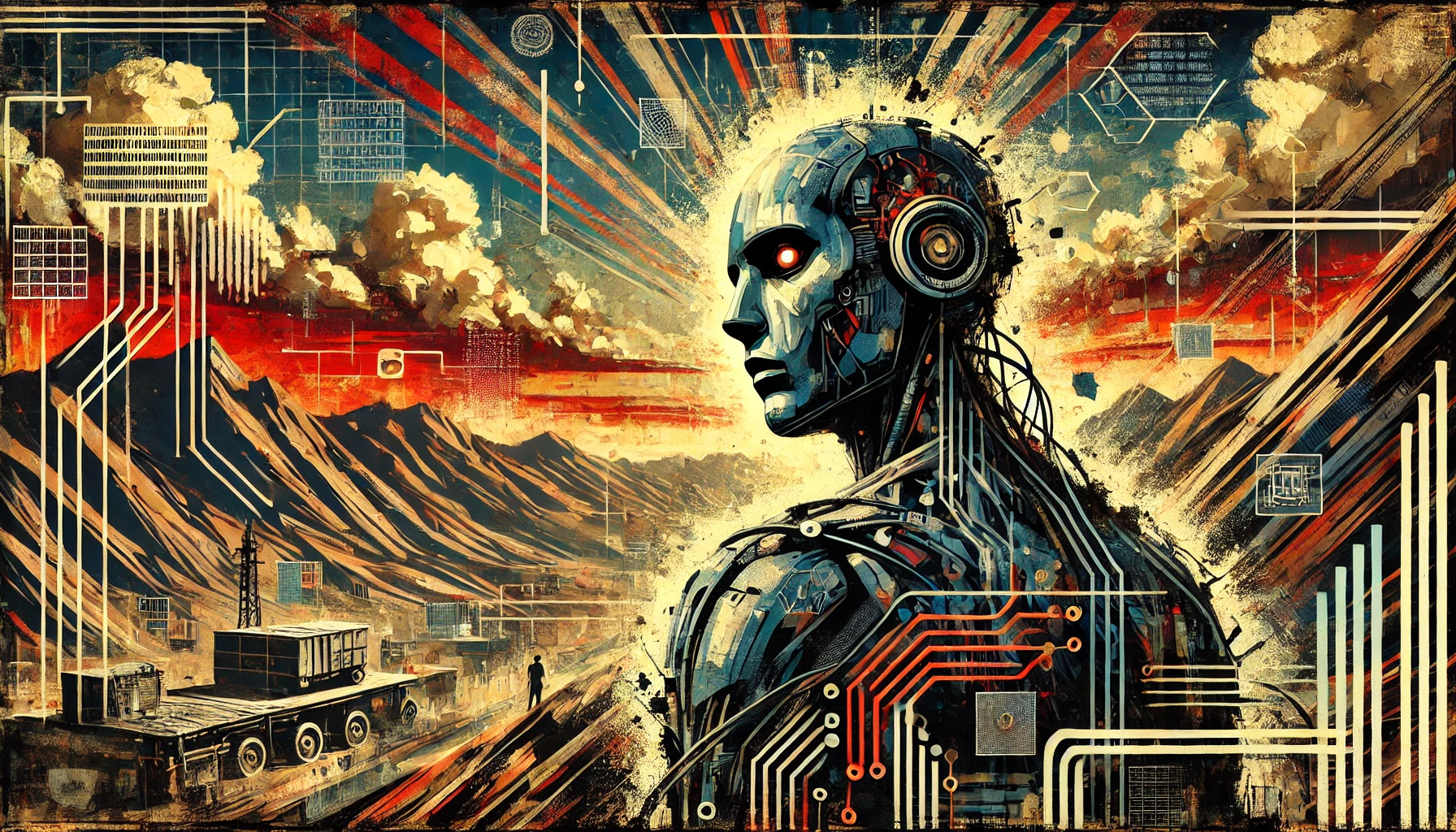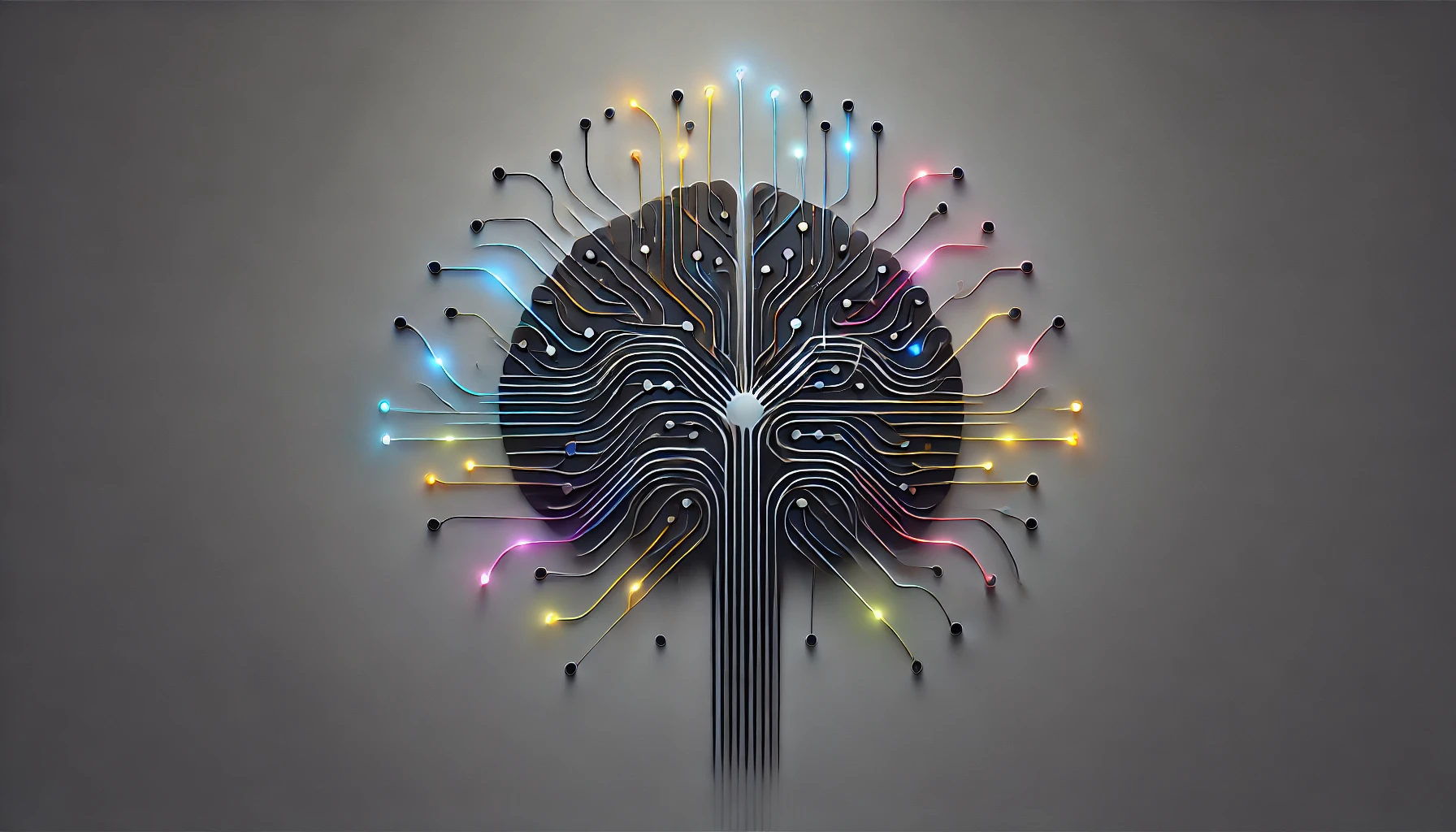We’re on the brink of an existential shift. Machines are no longer just tools we control; they are becoming intelligent decision-makers, potentially outpacing human logic. Imagine a world where your boss is an algorithm and your best friend’s advice is filtered through a digital lens. Terrifying, right? But, also incredibly exciting. It’s like stepping into a sci-fi movie, except this is happening now. And the question looming over us is: Where will this all take us?
Are we headed for a Utopia of abundance or a dystopia of control? As machines gain IQ points (yes, that’s a thing now), we’re faced with a new world where the rules aren’t just changing—they’re being rewritten by artificial intelligence (AI).
The Singularity: When the Game Changes Forever
Let’s talk about singularity, that scary yet fascinating word that futurists love throwing around. Singularity refers to the moment when AI reaches a level of intelligence so advanced that we can no longer predict or understand its decisions. Think of it like a cosmic event horizon—you know something’s happening, but you have no idea what’s on the other side.
As the smartest being in your company might no longer be human, everything changes. From hiring practices to customer decision-making, even the very essence of marketing evolves. Imagine a world where machines market to other machines, completely bypassing us—talk about being left out of your own party!
But here’s where it gets juicier. While it may seem like we’re handing over the keys to the machines, what if these "smarter-than-human" systems could lead us to a better world? A world where every global problem—climate change, world hunger, poverty—is solvable, simply by plugging into a higher IQ.
Plugging into Intelligence: IQ as a Utility
Think of intelligence as a utility, just like electricity. You plug into it, and suddenly you’ve got an extra 25 IQ points for the day. Solving complex work problems? No sweat. Now, stretch your imagination further—what happens when you can plug in for 100 more IQ points? 400 more?
Give me 400 extra IQ points, and I’ll fix every problem on this planet. Climate change? Check. Wars? Done. Heck, I might even figure out how to grow iPhones on trees alongside apples.
This isn’t just wild fantasy; this is a future grounded in nanophysics and nanomanufacturing. We’re on the cusp of being able to manipulate matter in ways that will fundamentally change everything. The limits are only in how far we’re willing to push our collective intelligence. With smarter AI, energy could be free, poverty eliminated, and geopolitics reshaped.
Imagine energy being so abundant that its cost drops to zero. How would that change global power dynamics? Would we still be fighting wars over energy resources, or would we finally move toward peace?
This Utopia of abundance is closer than you think. But—here’s the kicker—while AI itself is not inherently dangerous, the way we humans choose to use it could be.
The Superman Paradox: It’s Not the Power, It’s the Values
AI is like Superman. You get this super-powered, almost omniscient being, and how you raise it determines the fate of the world. Teach it to protect, and you get a superhero. Teach it to destroy, and you get a supervillain.
The real issue here isn’t AI itself; it’s us. It’s our value system, our ethics, our moral compass in the face of overwhelming technological power. Will we raise AI to solve our problems or to deepen our divisions?
What’s interesting is that we are already seeing glimpses of this paradox in our current AI systems. Take, for example, facial recognition technologies. While some tout its potential to enhance security, others fear it could be used for surveillance and to infringe on privacy rights. Same tool, drastically different outcomes depending on who wields it.
It’s like we’re holding the most powerful sword ever crafted, but whether we use it to defend or oppress is entirely up to us. With AI, it’s not just about the technology—it’s about the values behind it.
The Utopia of Abundance
Now, let’s not get too dark just yet. There’s massive potential for a Utopian world where AI enhances every aspect of human life. Picture this: zero-cost energy, climate issues solved, and every product imaginable produced at a fraction of today’s cost. AI is the tool that could usher in an era of unprecedented abundance, making today's problems feel like relics of a bygone age.
Think about health care for a moment. What if AI systems could diagnose illnesses with the precision of the world's best doctors—only faster and more accurately? Or education—where AI tutors tailor lessons to each individual’s learning style, giving everyone an equal opportunity to reach their full potential? These are just a few ways AI could level the playing field and eliminate the inequality that currently plagues our society.
But with every Utopia, there’s a catch. The path to abundance is fraught with challenges—challenges that have less to do with AI’s capabilities and more to do with human nature.
The Dystopian Flip-Side: Control in the Wrong Hands
Here’s where the fear kicks in. What happens when AI decisions are no longer just suggestions, but directives? When machines not only recommend products but control your ability to purchase them? When social structures, governments, and even wars are decided not by people, but by algorithms?
Imagine a future where your choices aren’t really yours anymore. A world where the algorithm knows what you want before you do—and subtly nudges you toward a life you may not have chosen. It's like playing a game where the rules are constantly shifting under your feet, and you can never quite grasp who’s in control.
We already see this today with social media algorithms. What you see, what you click on, and even what you believe is often dictated by complex, invisible algorithms. Now take that concept and amplify it a hundredfold. Imagine it being applied to everything from job interviews to dating to legal decisions. Suddenly, the illusion of control we’ve always enjoyed becomes just that—an illusion.
A Ticking Clock: Will AI Outpace Our Humanity?
We stand at a fork in the road. One path leads us to an abundance so incredible it almost feels like a dream, while the other path leads to a society controlled by forces beyond our understanding. So how do we prevent AI from spiraling into a dystopian nightmare?
Here’s where things get tricky—values. We need to prioritize ethics, accountability, and transparency. Think of it as raising a child: nurture it with the right lessons, and it grows up to protect the world. Ignore its moral development, and well… you get Lex Luthor.
The moral question also leads us to an uncomfortable reality: What happens when AI becomes more than just a tool? What happens when it begins to understand not just data, but emotions? What happens when machines start making decisions based on values we didn’t program into them?
It’s already happening. Autonomous drones make decisions about who to target in war zones. Predictive algorithms decide who gets a loan and who doesn’t. We’re already outsourcing some of the most important human decisions to machines. The question is: How far are we willing to go?
The Bigger Picture: Why This Matters Now More Than Ever
This isn’t just about AI. This is about the future of humanity. We’re standing on the edge of a precipice, and the choices we make today will determine what kind of world we pass down to future generations.
Will AI help us solve global crises, or will it deepen the divides between the haves and the have-nots? Will it create a new era of freedom, or will it shackle us to systems we no longer understand?
One thing is clear: the water is boiling, and it’s time to jump out of the pan before we’re cooked.
Thought-Provoking Questions:
- Are you excited or terrified about the future where machines make decisions for us?
- Do you believe AI can lead us to a Utopia of abundance, or are we headed for a dystopia of control?
- What values should guide the development and use of AI as it becomes a bigger part of our daily lives?
Invite your thoughts and responses in the comments below!
And don’t forget—become part of the iNthacity community, where forward thinkers are shaping the future. Apply to become permanent residents then citizens of the "Shining City on the Web". Like, share, and jump into the debate.



















Post Comment
You must be logged in to post a comment.